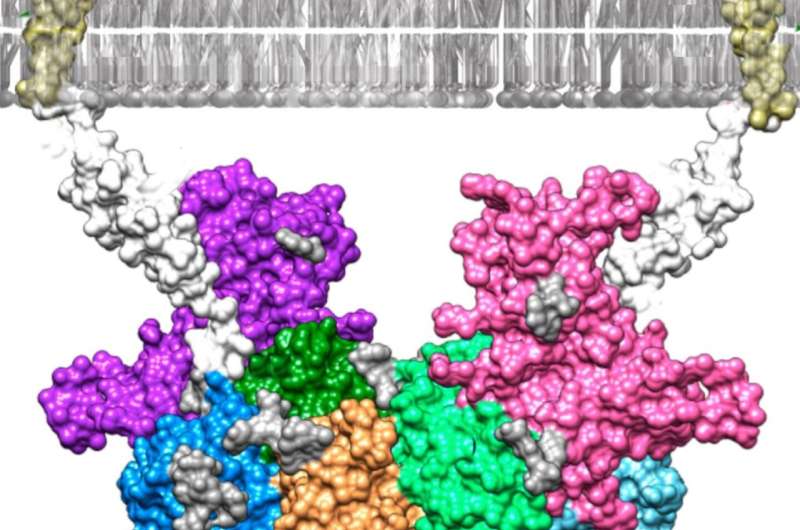Inhibition of meprin β enzyme, linked to the development of Alzheimer’s disease, analyzed

Researchers at Johannes Gutenberg University Mainz (JGU) in Germany and the Institute of Molecular Biology of Barcelona in Spain have discovered how the blood plasma protein fetuin-B binds to the enzyme meprin β and used a computer model to visualize their findings. These results could lead to the development of new drugs to treat serious diseases such as Alzheimer’s and cancer. Meprin β releases proteins from cell membranes, thus controlling important physiological functions in the human body. However, a dysregulation of this process can trigger the development of Alzheimer’s and cancer. Meprin β is regulated by fetuin-B binding to the enzyme when required, thereby preventing the release of other proteins. Presenting their findings in the journal Proceedings of the National Academy of Sciences, the researchers are now the first to describe this binding in detail.
The team at Mainz University produced both meprin β and fetuin-B in insect cells and then allowed them to react with one other in a test tube. By means of measurement of enzyme kinetics and biophysical analyses, the researchers determined that this reaction resulted in an exceptionally stable, high-molecular-mass complex. Their colleagues in Barcelona subsequently managed to crystallize the complex and determine its three-dimensional structure using X-ray crystallography. This involved X-rays being fired at the protein crystals, which allowed the atomic structure of the crystals to be calculated from the diffraction of the X-rays. A computer model of the structure was then generated.
Source: Read Full Article
